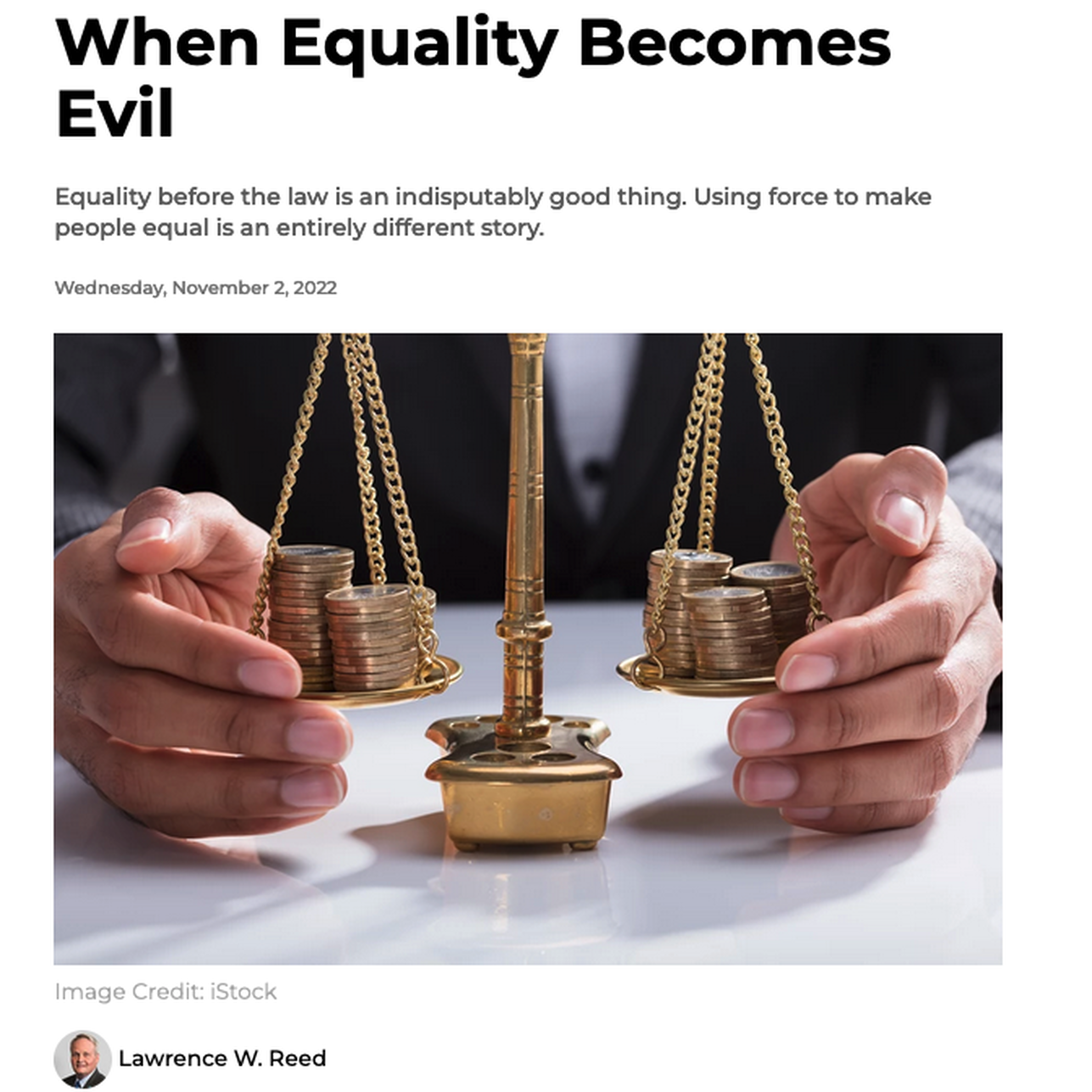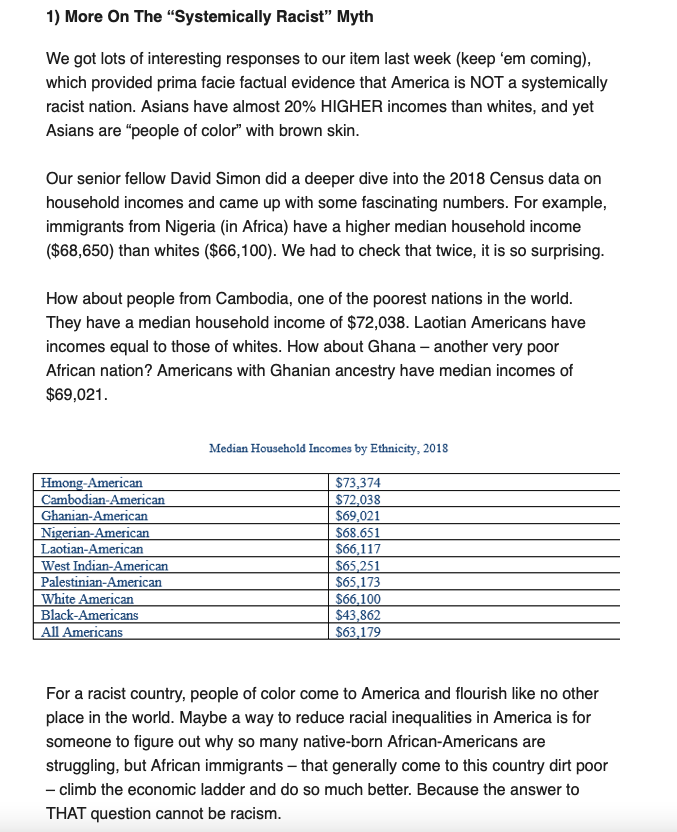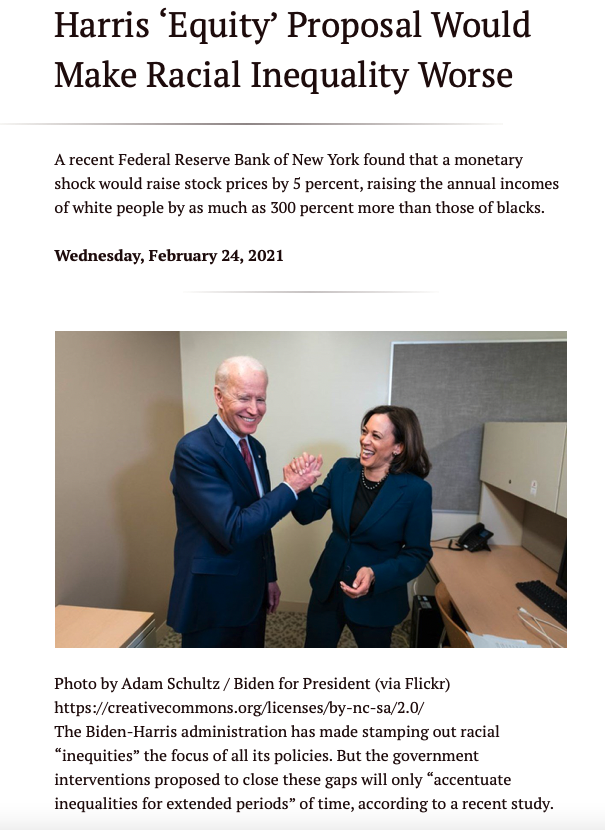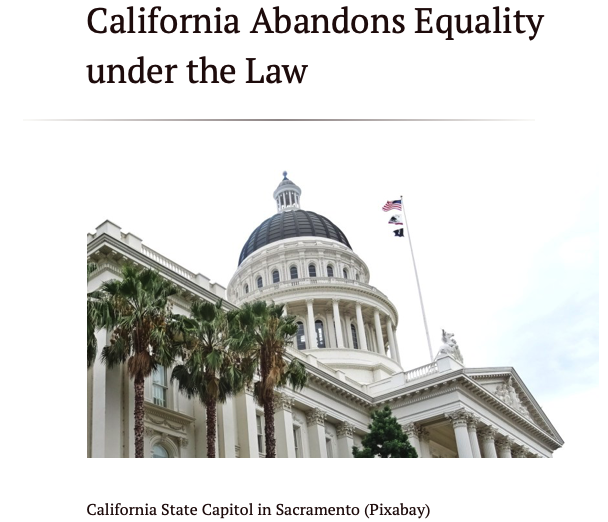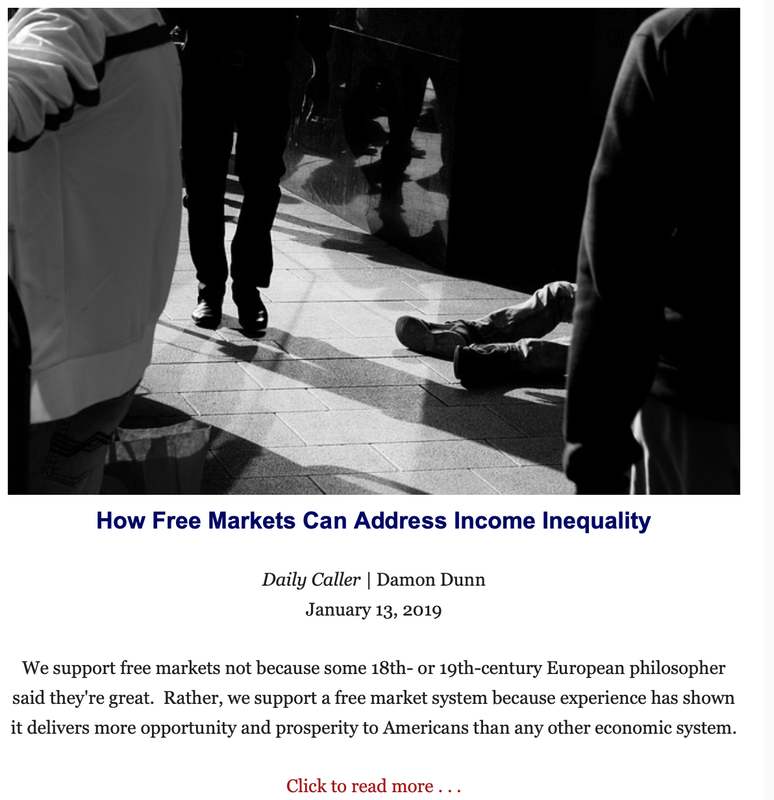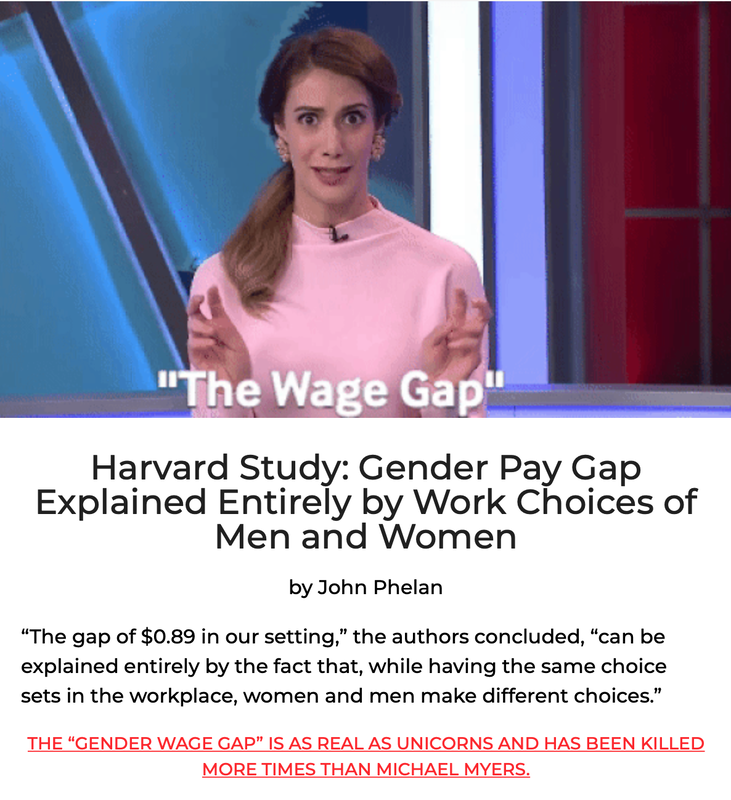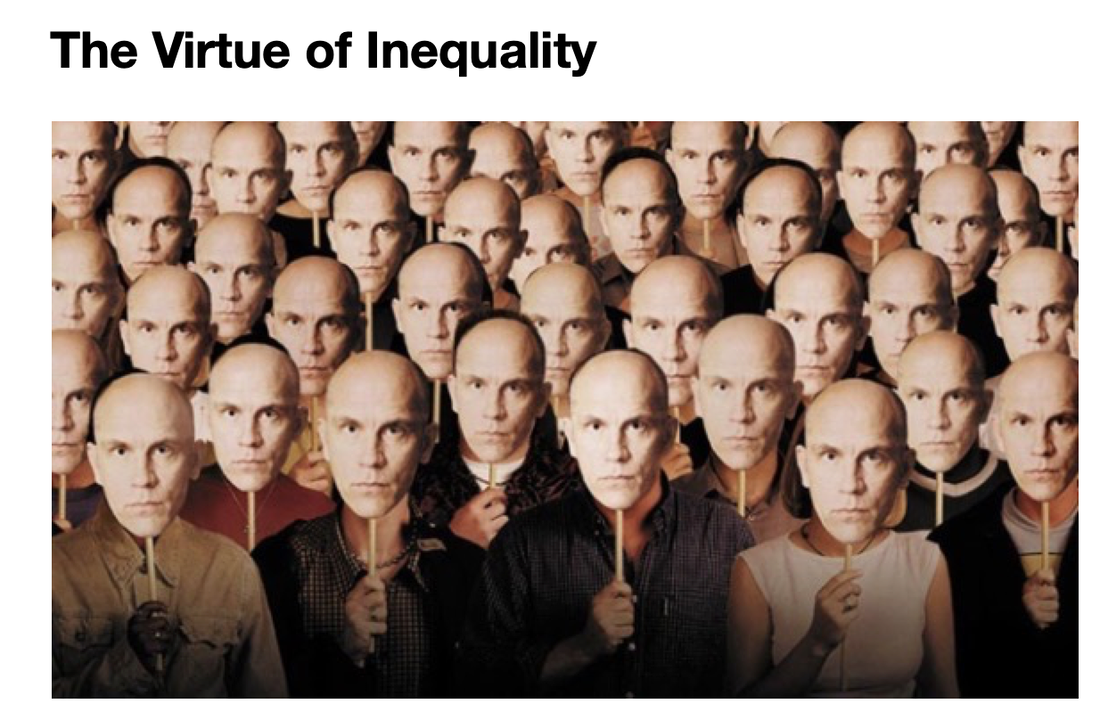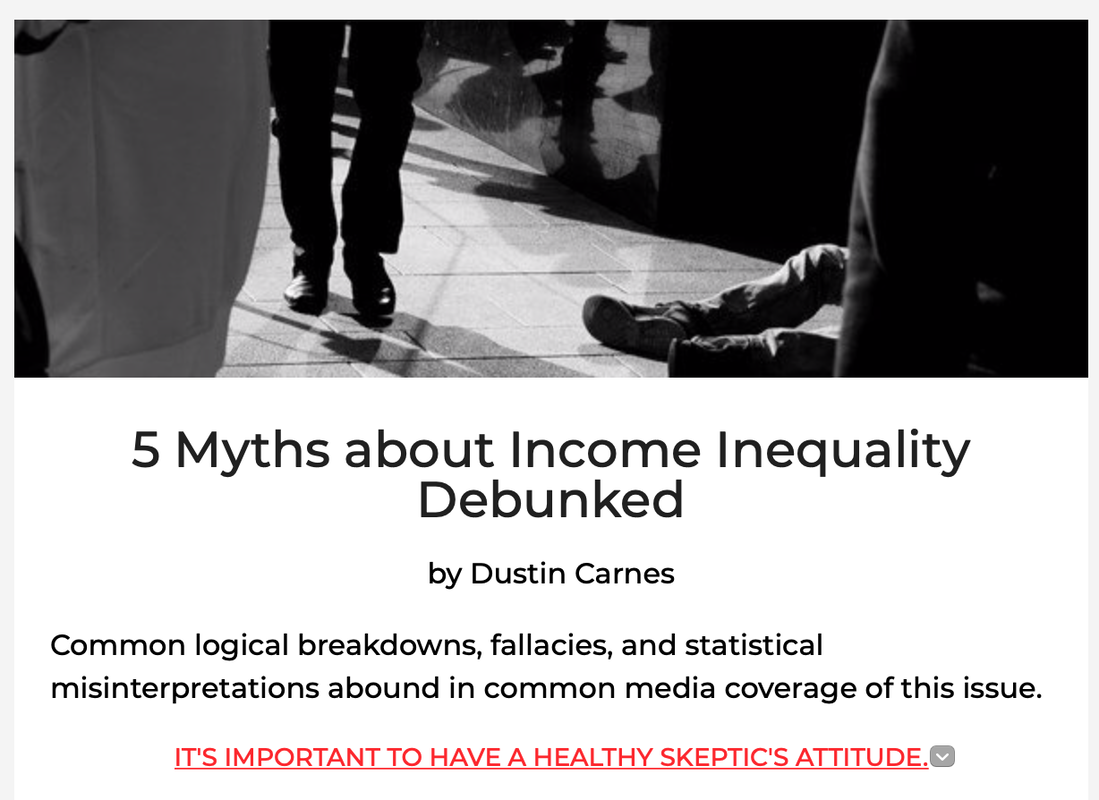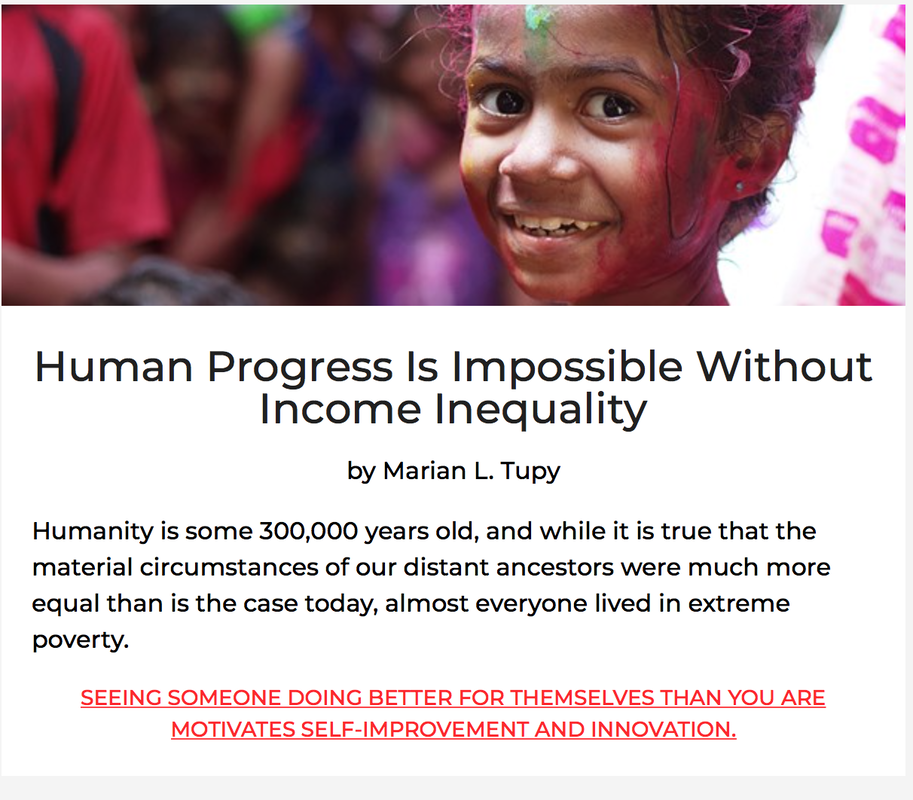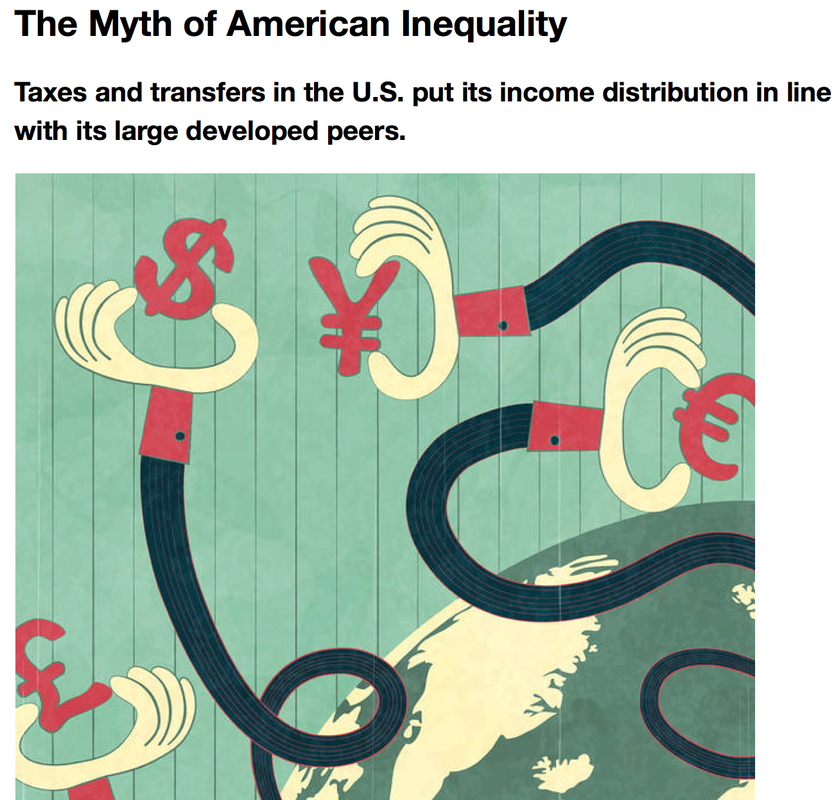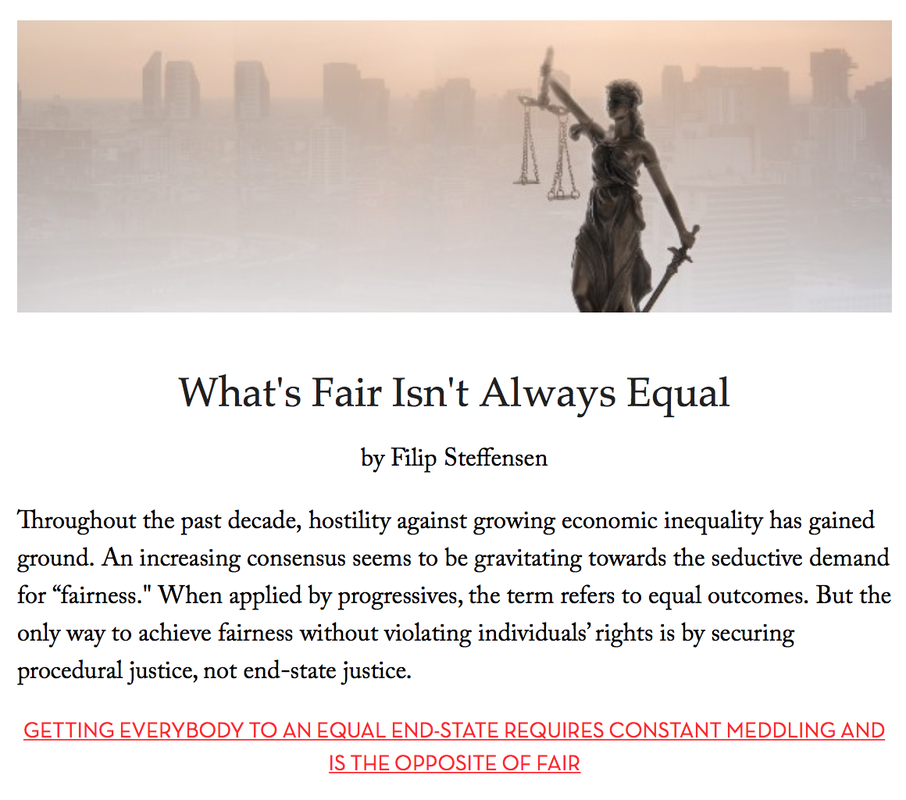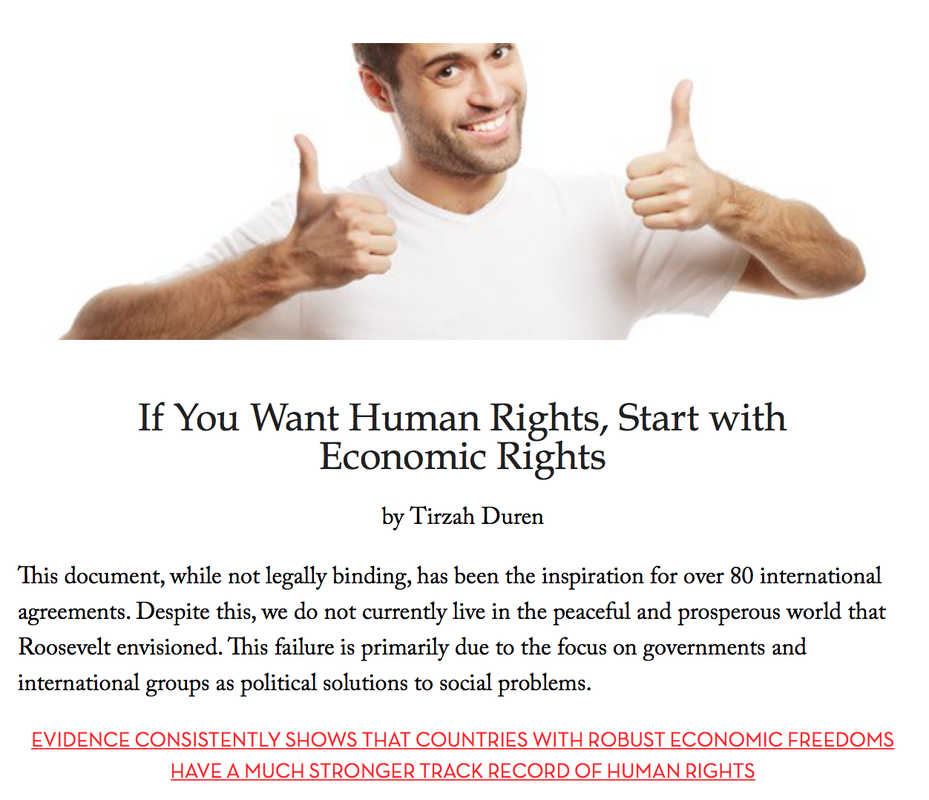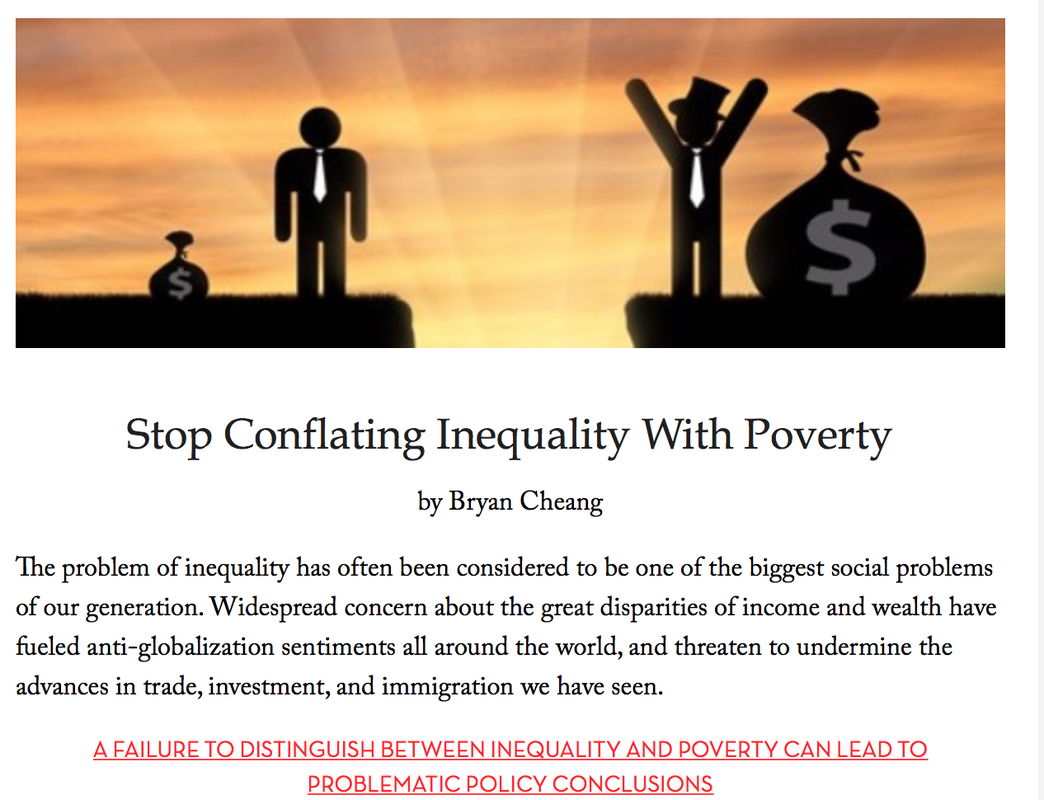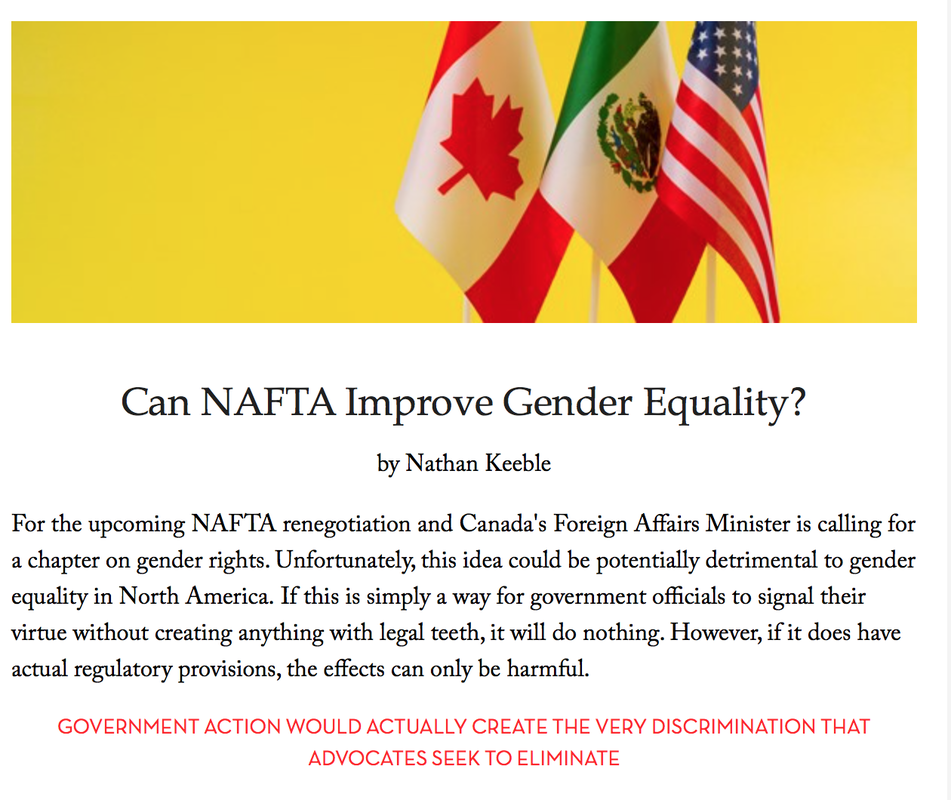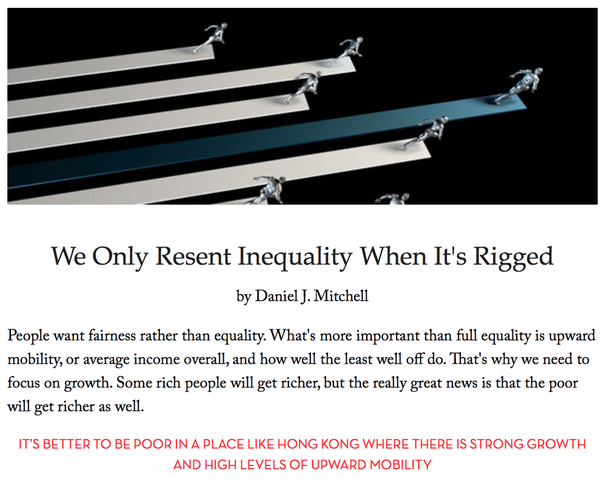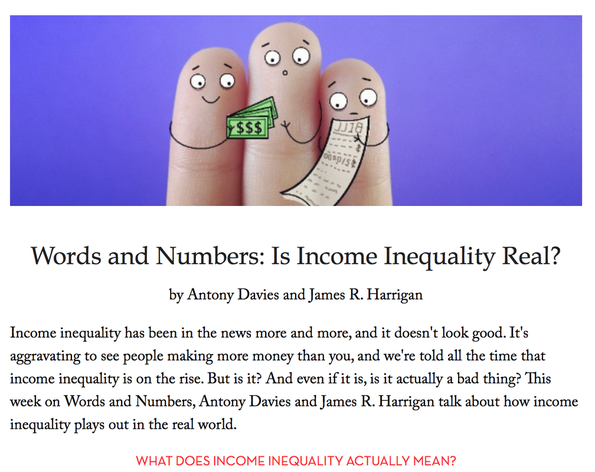Inequality Debate
The Unfairness of Equal Outcomes | Steven Horwitz
When I talk to student groups about inequality, one of the first things I ask them to do is consider a mental experiment. Imagine a society in which, for example, the richest 20 percent of households earn an average of $60,000 per year and the poorest 20 percent of households earn an average of $10,000 per year.
Income Inequality Is a Natural and Desirable Feature of Labor Markets | Joseph Michael Newhard
With the next presidential election already looming, it's as certain as death and taxes that another round of hysterical demagoguery is upon us. Among the regurgitated bromides will be complaints about that tired socialist bogeyman of income inequality. Yet, when envy gives way to economic analysis, we find these grievances to be without merit.
As Long As People Are Free, There Will Be Inequality | Antony Davies, James R. Harrigan
If there's something that progressives agree on, it's that inequality exists and that it's a problem. But what do we mean when we say "inequality"? Is it that some people have more "stuff" (money, goods, access to services) than others? Is it that some people are more skilled, more talented, better looking, or just plain luckier than others?
Income Equality Is No Measure of Human Progress | Marian L. Tupy
Pinker questioned many of the rationales for treating income inequality as the "defining challenge of our time" and concluded that "income inequality is not a fundamental component of well-being." Those who are concerned with income inequality should be aware of Pinker's arguments-and engage with them in a serious manner.
Inequality Is the Wrong Indicator - Why We Should Focus on Poverty Instead | José Ponce
Cuba, with a Gini index of 0.38 and Liberia with 0.32 have much less inequality than the highly-developed Singapore and Hong Kong, with Gini coefficients of 0.45 and 0.53, respectively. Citizens in a poor country with low inequality are equitably poor.
Inequality Is a Side Effect of Progress | John Tamny
Progress has been historically defined by a shrinking of the world through technology. As it shrinks we have more and more people capable of serving our myriad needs. Humankind's best and brightest have worked feverishly for centuries to enable more and more trade among individuals who don't happen to live next to each other.
How Uber Promotes Equality | John O. McGinnis
Uber is a company under attack by politicians and the media. Many politicians, like Bill De Blasio, want to restrain its growth to protect incumbent cab companies. Others want to undermine its business model by requiring that its drivers using its devices be employees rather than independent contractors.
Would You Rather Have Income Equality or Income Mobility? | Anne Bradley
Income equality sounds like a good thing until you realize it means that everyone is equally poor. Income inequality means that if you enter the workforce with low skills and low income, you can move up the ladder to higher incomes as you improve and increase your skills.
Wealth Inequality Doesn't Mean More Poor People | David R. Henderson
In an article titled " Why People Vote Against Their Own Interests," Forbes, November 8, Bruce Lee, an Associate Professor of International Health at the Johns Hopkins Bloomberg School of Public Health, writes: Voting seems pretty straightforward, right? Choose what is good for you and avoid what is not.
